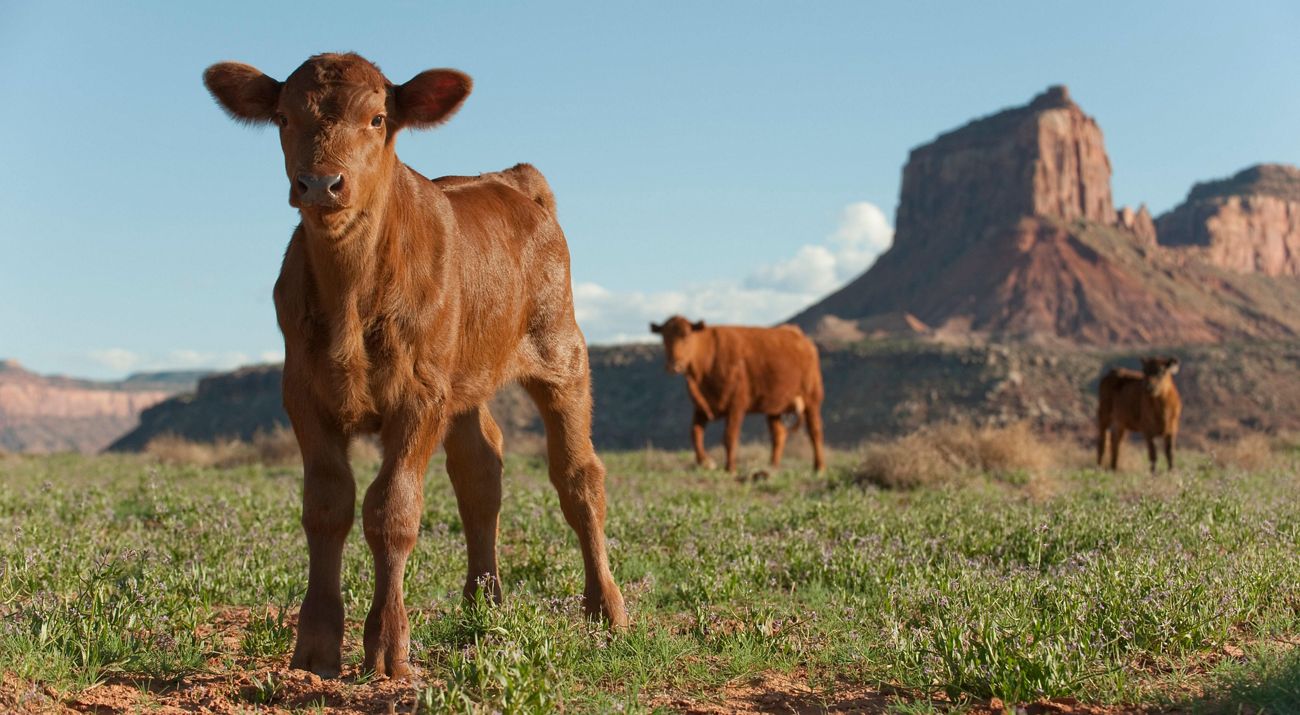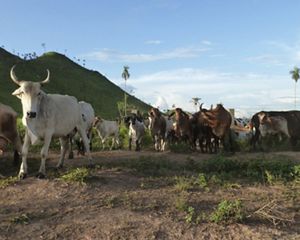
Beef production requires a significant amount of energy, water and land, while producing waste and greenhouse gases. As global populations continue to rise, so will the demand for beef.
To find sustainable solutions, scientists need to first understand the impacts of each phase of the beef production process. Surprisingly, there is little research summarizing the impacts of beef production in a comprehensive way.
The Nature Conservancy recently completed a comprehensive scientific review of peer literature to better understand how the beef supply chain intersects with the environment and to identify opportunities for improvement. Read the Conservancy’s report, U.S. Beef Supply Chain: Opportunities in Fresh Water, Wildlife Habitat, and Greenhouse Gas Reduction.
Our scientists, led by Jon Fisher of the Center for Sustainability Science, analyzed the key production phases of the chain: ranch and farm grazing; feed production; feedlots; and harvest facilities. They also examined three types of environmental impacts: freshwater supply and quality, wildlife habitat, and greenhouse gases.
The key findings and recommendations of the paper include:
- While current sustainability efforts are focused primarily on the feed production and feedlot phases, to make substantial progress on sustainability, increased attention is needed on how to drive improvements in the ranch and farm-grazing phase.
- Adaptive management grazing plans and water quality best management practices on pasture and rangeland offer multiple benefits.
- There are several opportunities to improve manure management at feedlots to reduce water quality and address greenhouse gas issues.
- In addition to well-established best management practices for row crops, changes to how hay is harvested offers benefits to wildlife.
While the paper outlines vital information to identify opportunities for improving the sustainability of the beef supply chain, more research is needed. Looking at other factors, including social and economic issues, and assessing the financial costs of the recommendations will also help strengthen our knowledge about the beef supply chain and influence options for a way forward.
This type of research will help many stakeholders, including the U.S. Roundtable for Sustainable Beef, take more informed positions, and improve supply chain engagement programs. Walmart, a partner and Roundtable member, provided funding to the Conservancy for this project.
To learn more about the findings, please read the full report here.
Global Insights
Check out our latest thinking and real-world solutions to some of the most complex challenges facing people and the planet today.


